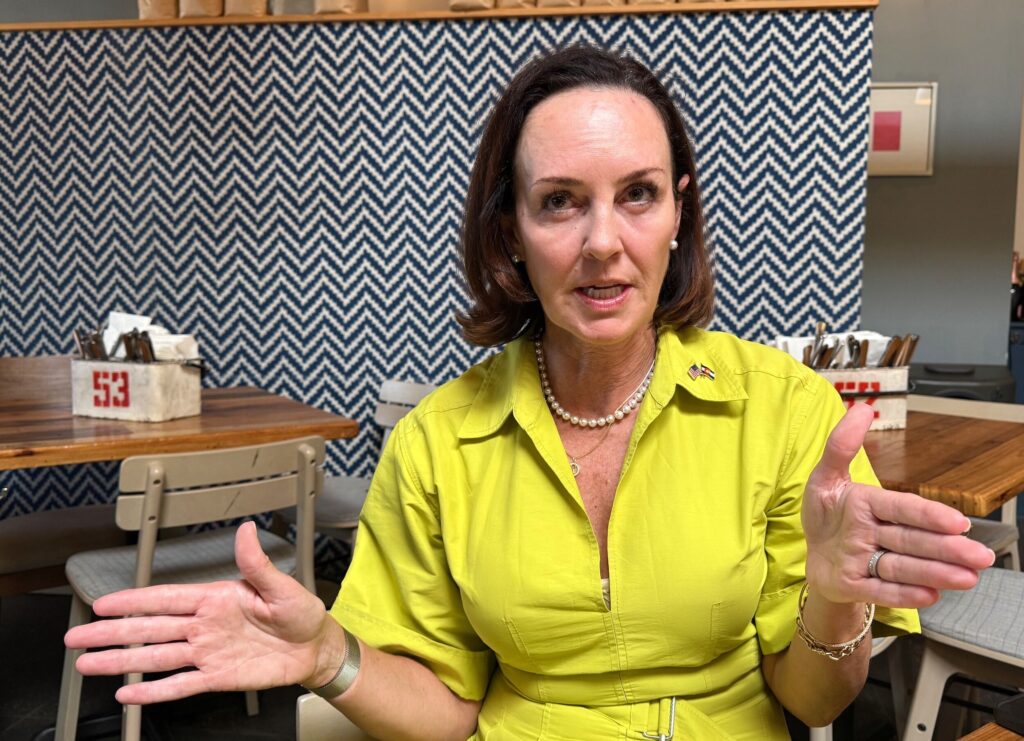Aspinall dispels retirement rumors | A LOOK BACK

Sixty Years Ago This Week: U.S. Rep. Wayne Aspinall, D-Palisade, announced to a meeting of Western Slope Democrats that he would indeed be running for reelection in 1964.
“If I look like a corpse, go out and see if you can find a livelier one,” Aspinall said, in reference to Republican hopes that he wouldn’t be able to handle the stress of another campaign.
Aspinall, who was born in April 1896, was 67 years old. He was first elected to Congress in 1948 and sworn into his U.S. House seat in January 1949 at the age of 52.
“We’ll make it in 1964 just like we have before,” Aspinall said to loud cheers. “In fact, I may even run for five or six more terms.”
The popular Western Colorado congressman’s announcement came during mounting speculation over who the GOP would pick to oppose Aspinall in the upcoming election.
Also in attendance was the chairman of the Colorado Democratic Party, Robert Maytag, who let loose a blistering attack on the Republican Party’s seeming acceptance of right-wing influence and called on the GOP to “disavow the aims and activities of the extremist, right-wing groups infiltrating the Republican Party.”
Maytag pointed to one example from three years prior when U.S. Sen. Barry Goldwater, R-AZ, recommended that the Republican Party in the southern states not actively seek the Black vote, which prompted the GOP’s national chairman, William Miller, to publicly reaffirm the party’s platform on civil rights, as had been adopted at the 1956 convention.
Maytag told reporters at The Colorado Democrat that the meeting was a “very lively one” and provided ample evidence that the Mesa County Democratic Party was alive and well.
Thirty Years Ago: In the heat of what would later be termed Denver’s “Summer of Violence,” state Sen. Al Meiklejohn, R-Arvada, told the Colorado Commission for Achievement in Education that early childhood education was just “one piece of the puzzle” in dealing with juvenile violence.
Also present at the commission meeting was former Rep. Marleen Fish, R-Lakewood, who’d been named to head the Task Force on Early Education in 1992.
“By the time the kids get in gangs, it’s too late,” Fish said, emphasizing the desperate need for educational programs to set children on the right path before they matriculated into elementary school.
To this end, the state and federal governments operated eight early childhood education programs, and the Head Start Program was one available to low income families with children starting at three years of age through high school. But the Head Start Program was the target of intense controversy in the state.
Dave Smith of the State Department of Education noted that much of the effectiveness of Head Start and other pre-school programs evaporated by the time a child reached the third grade. Deborah Stinson, who ran several pre-school programs in Colorado Springs, told the commission that the drop-off in effectiveness was because support services to parents ended when a child entered elementary school.
The prevention of juvenile violence had quickly become a key issue among state and public officials after a spate of drive-by and accidental shootings in the Denver metro area. City council members for the City and County of Denver had passed two ordinances aimed at keeping firearms out of the hands of minors, and Gov. Roy Romer said that he was considering calling the legislature back for a special session to address the issue.
Fish told the commission that the state should start encouraging local communities to start their own pre-school programs and said her task force would recommend new legislation for the 1994 legislative session that would be mostly technical in nature and aimed at moral support from the state.
Sen. Sally Hopper, R-Golden, who chaired both an interim committee on juvenile violence and the subcommittee on juvenile violence for the Criminal Justice Commission, said that “not a lot” of legislation was expected from either group.
Hopper stressed that both of her committees were coordinating efforts to avoid duplication and to review what leads already existed and what new ones would be needed.
Rachael Wright has dual bachelor’s degrees in political science and history from Colorado Mesa University. She is the author of the Captain Savva Mystery series and is a contributing writer to Colorado Politics and The Gazette.














